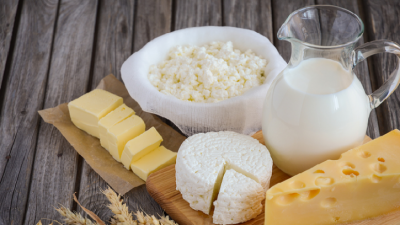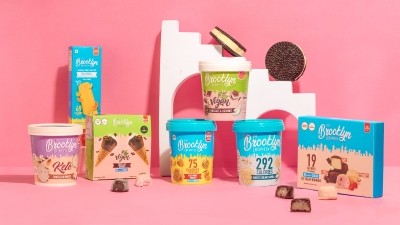Prioritising user-friendliness and customer incentives are key to unlocking e-commerce success in Middle East – experts

In the UAE and Saudi Arabia, some 47% of households (1.3m) and 30.7% of households (1.8m) respectively are purchasing FMCG online, according to global data company Kantar.
“The figures draw a compelling picture of market reach and potential in the Middle East, and reveal the readiness of consumers to embrace online shopping. E-commerce isn’t just a fleeting trend confined to the COVID-19 period — it’s the new cornerstone for retail. To thrive in this digital era, it’s crucial for businesses to not only understand the intricacies of online sales, but also devise and implement a forward-thinking strategy as well as refine shopping experiences.
“While the UAE and Saudi Arabia have made considerable progress, there is still ample room for growth compared to markets like China, US and South Korea, where e-commerce penetration is notably higher. Nevertheless, the Middle Eastern markets show promising potential, and are poised to match or exceed other markets with their digital-savvy youth populations,” Imtiaz Hashem, Consumer Insights Director (Middle East Worldpanel Division) at Kantar, said during a recent webinar.
Based on his insights, widening customer reach is crucial for online retail growth. It is also critical for businesses to align their online presence with consumer preferences.
“Success in the dynamic online retail space hinges on a deep understanding of consumer behaviour, and the agility to adapt to evolving preferences. E-commerce involves three stages — developing, destination, and discovery (mature phase). Saudi Arabia is currently at the developing stage, where new platforms are gaining traction and online shoppers, often first-time users, engage with these platforms out of curiosity.
“In this market, the impact of pricing on purchase volumes is substantial, but discounts alone don’t drive e-commerce sales. Retailers must enhance their online value proposition with diverse incentives, such as exclusive offers, improved delivery options, and personalised experiences.”
On the other hand, the UAE is at the “destination” stage, where early adopters are solidifying their online shopping habits.
“Here, the focus for e-commerce players is on enhancing user-friendliness to boost customer retention. Over the past three years, we have seen a marked increase in the size of online shopping baskets. Consumers in the UAE are buying and spending more per online transaction, especially in food and beverage, compared to per in-store trip. A substantial number of shoppers are purchasing more than 50 items per transaction, a trend that’s less pronounced in offline retail.
“This underscores the importance of optimising offerings to cater to the growing appetite for larger online purchases. For example, retailers can entice customers to add more to their carts by promoting larger pack sizes or bundled packs, suggesting related items, and expanding product assortment to meet varied shopper needs. It’s clear that e-commerce is not just an alternative platform for traditional retailers, but an essential strategic tool worth investing in.”
In addition, Hashem said that there is untapped potential in Saudi to replicate UAE’s success in achieving larger basket sizes.
“With more women entering the workforce in Saudi Arabia, time is becoming a premium. Like their UAE counterparts, they are expected to increasingly turn to the convenience of online shopping. Leveraging targeted product recommendations, cross-promotion strategies, and loyalty programmes can be effective in driving growth of e-commerce here.”
Furthermore, Divesh Israni, Retail & Shopper Director (Middle East Worldpanel Division) at Kantar, shared that retailers could explore subscription models, so as to encourage customers to commit to recurring purchases.
“Consumers are open to paying higher prices for certain categories, premium brands or SKUs when shopping online. For retailers, it represents an opportunity, not a threat. For manufacturers, this opens avenues to develop complementary products for cross-selling, which may be challenging in a physical store setting,” he added.
Sectors thriving in the online landscape
In the UAE, the food and dairy sectors have one of the highest online penetration rates, with spending growth rates at 24% (versus 6% offline) and 9% (versus 4% offline) respectively.
“Food and dairy will play an important role in growing e-commerce. However, retailers must ensure that the line-up available in physical stores is seamlessly replicated online. If shoppers cannot find their preferred brands or products online, there’s a risk they might delay adopting e-commerce.
“Additionally, special attention should be given to beverages, considering that consumers are showing preference for buying them via e-commerce (13% offline versus 16% online). Despite having relatively low online penetration, consumers are thirsty for more online beverage purchases. Therefore, enhancing the visibility and communication of beverages on online platforms is crucial,” said Israni.
For the Saudi market, online expenditures in non-food categories are sprinting ahead of offline counterparts at an “impressive rate”. The growth is particularly remarkable in the personal care sector, which is reportedly experiencing a decline in offline channels.
“The non-food segment provides consumers with an opportunity to explore and experiment in the online space. This trend may be driven by factors such as convenience, accessibility, or even comfort. The variety of products offered online also makes it more appealing. Once shoppers are engaged on a platform, there’s potential to connect them with food categories more effectively.”
Israni emphasised that de-averaging and tailoring strategies to specific categories and demographics is paramount.
“Consumer behaviours vary across categories. For instance, consumers are spending 27% more on biscuits online than offline, and they are leaning towards larger pack sizes. These insights mean that biscuit manufacturers should focus on stocking bigger packs on their digital shelves. Beyond increasing basket sizes, manufacturers and retailers can introduce premium categories or brands, and even possibly secure higher margins for specific SKUs.
“In terms of demographic segments that are accelerating e-commerce growth, consumers and middle-aged households in Dubai are visibly making more online purchases, signalling opportunities to raise online penetration among Emiratis and the affluent population.”























